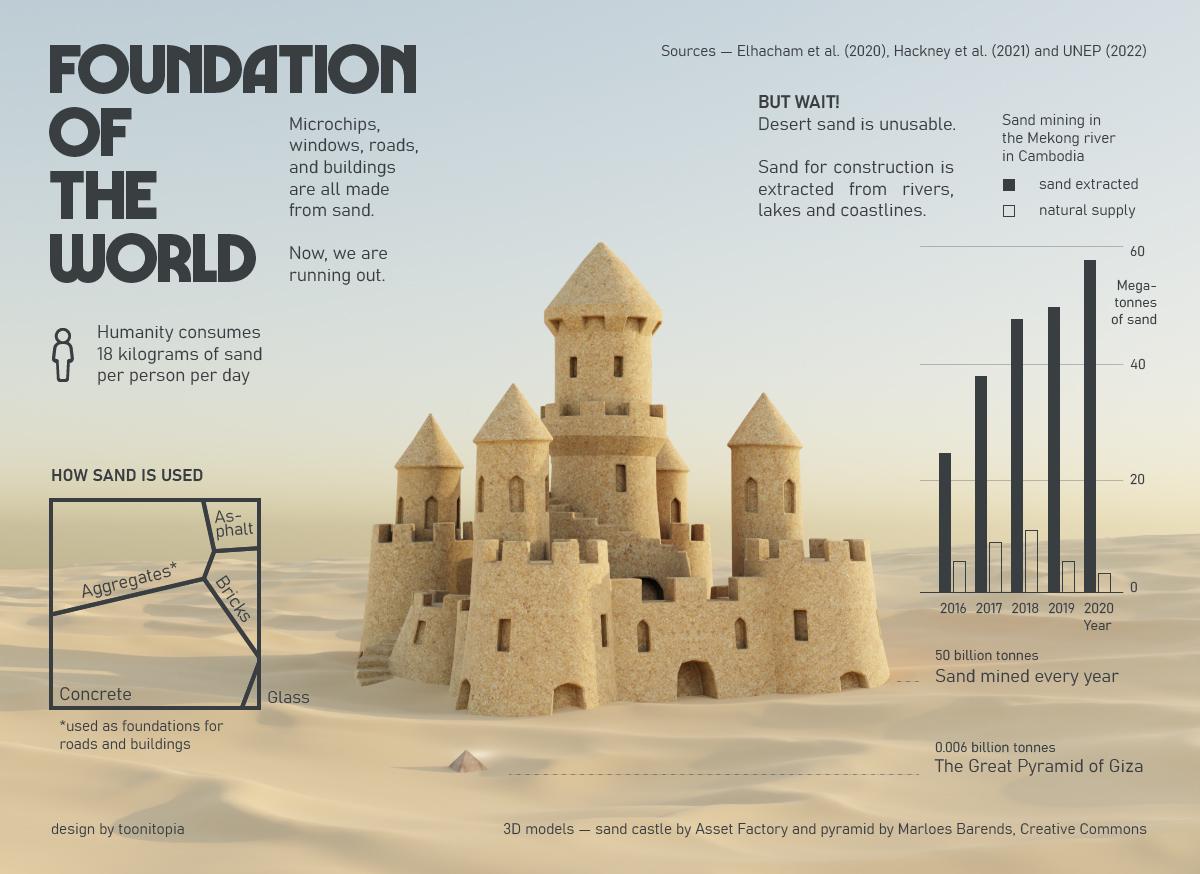this post was submitted on 26 Jul 2024
108 points (99.1% liked)
Data is Beautiful
1151 readers
1 users here now
Be respectful
founded 4 months ago
MODERATORS
you are viewing a single comment's thread
view the rest of the comments
view the rest of the comments

So am I correct in guessing it at least (if quartz sand) can be used for microchips and the likes? I hope the rough sands aren't extrated just to be used in something, were other, less scarce sands could be used - but I could at least imagine stuff like economy of scale, existing infrastructure and special interest of the established industries could actually cause that.
But the amount needed for chips is several order of magnitude lower than what needed for concrete. If you see the square, usage diagram on the lower left, chips aren't even visible, so small is needed.
You can also use it for glass, which is on the diagram, there is this old video of a guy 3D printing things with only solar power in the Sahara:
We don't really have an economical alternative to concrete (yet) in a lot of usecases, e.g. building foundations, substructure everywhere on the earth is made from concrete. On superstructure there are other options as structural material, e.g. wood, steel, but those don't like to be put in soil.